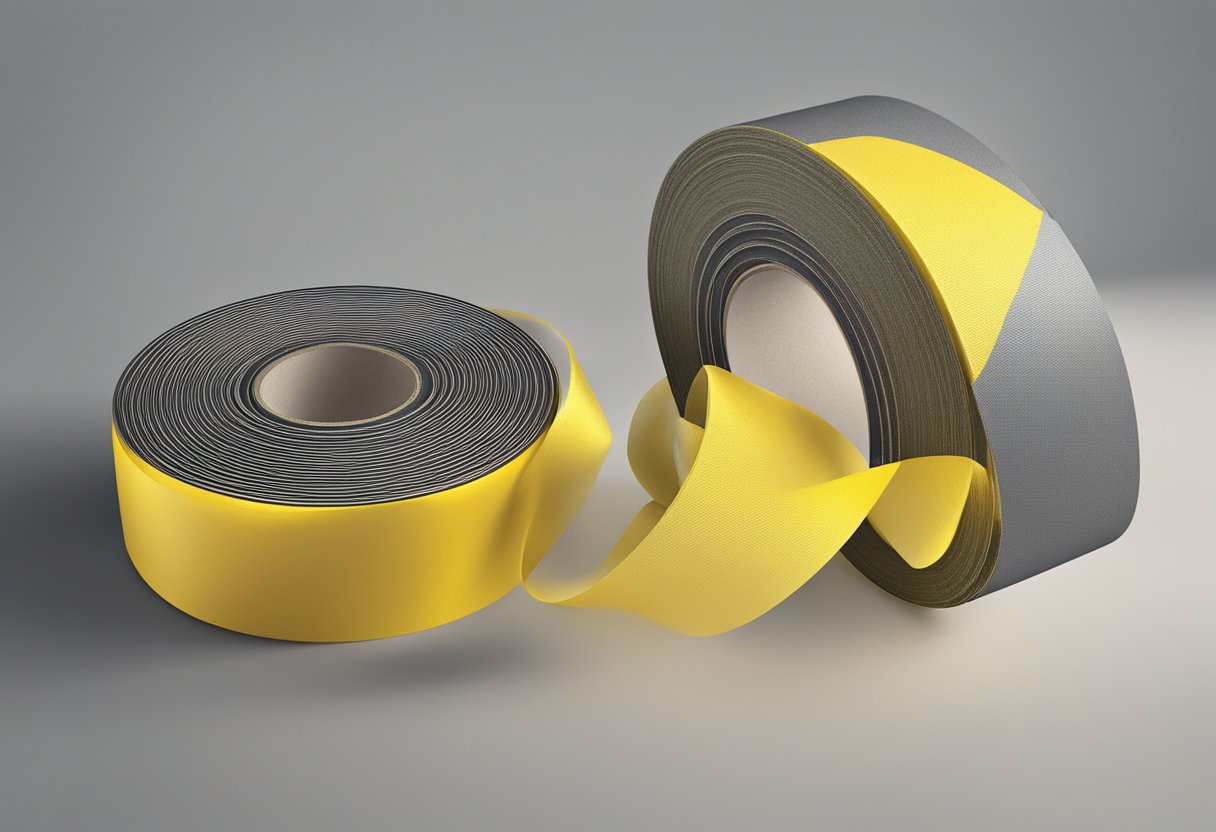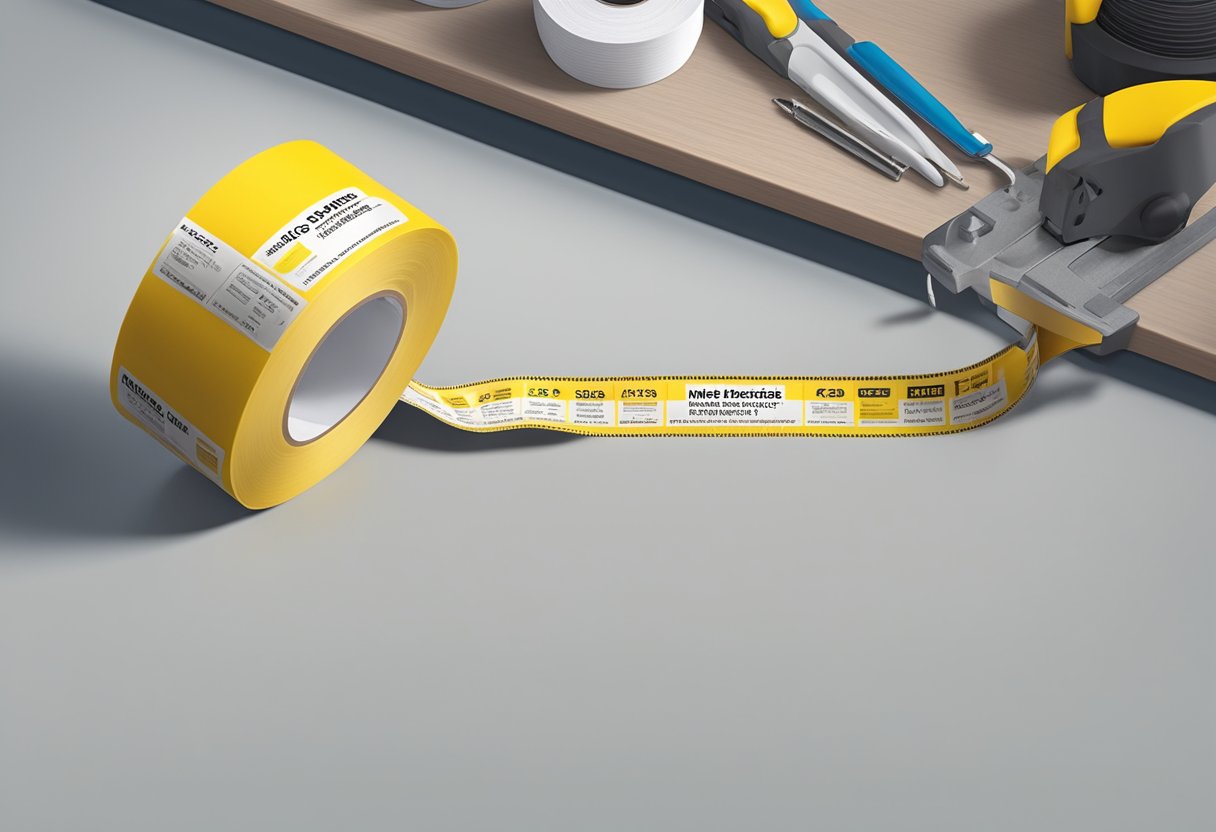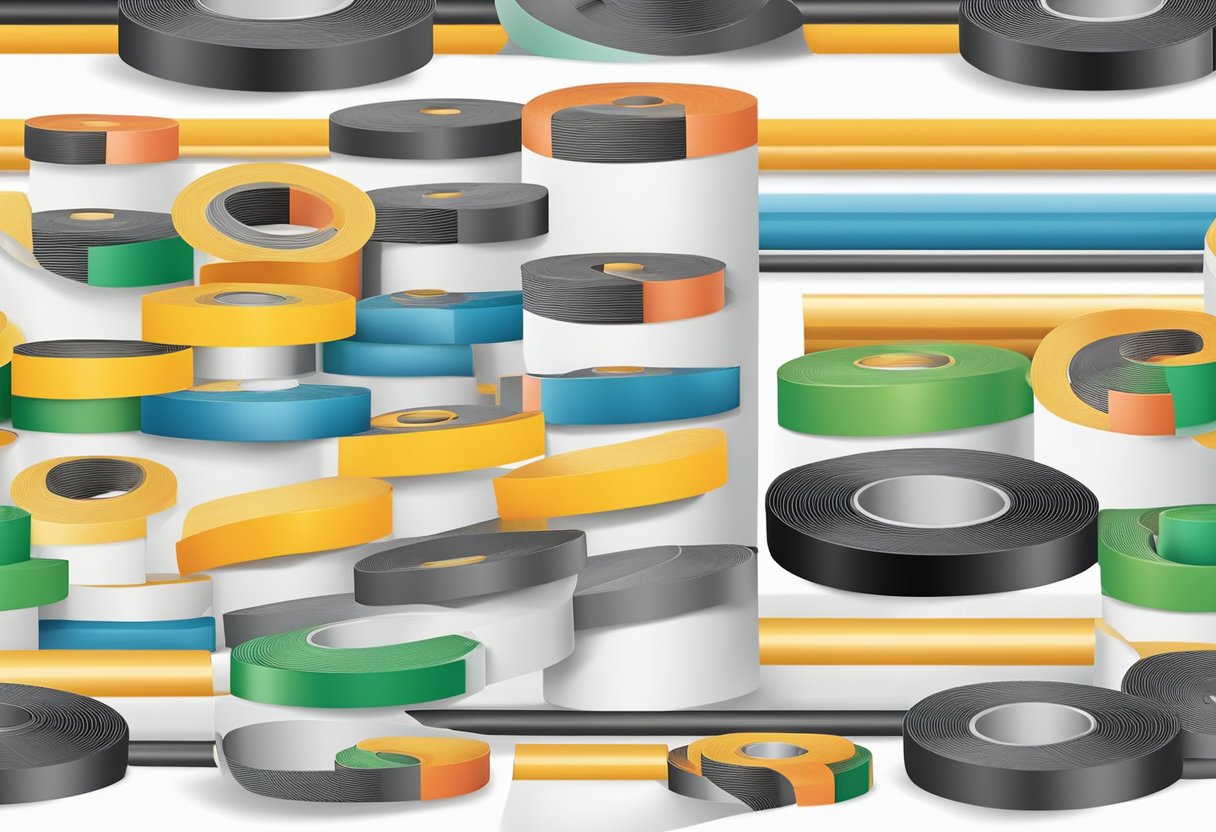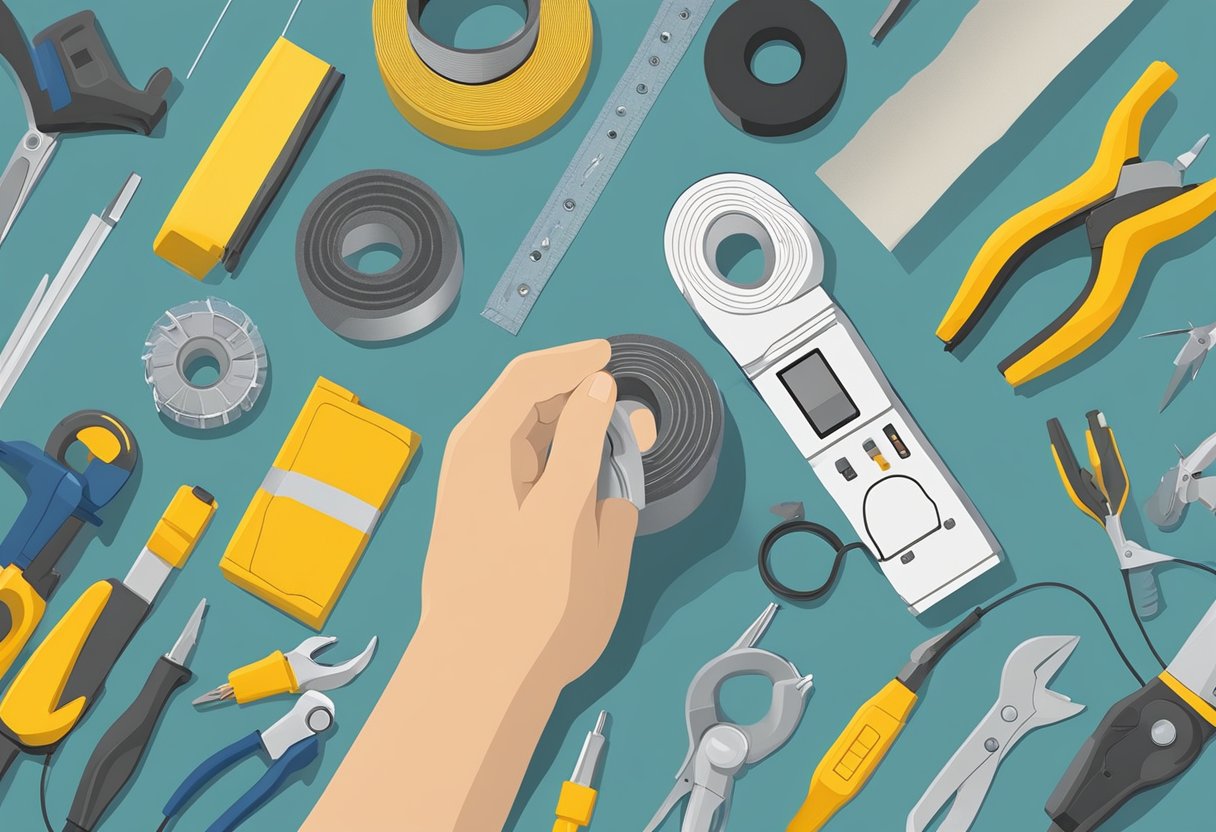Electrical Fiberglass Tape: A Comprehensive Guide to Its Uses and Benefits
Electrical fiberglass tape is a type of adhesive tape that is widely used in the electrical industry. It is made of fiberglass and coated with a special adhesive that provides excellent insulation properties. The tape is commonly used to insulate electrical wires and cables, as well as to reinforce and protect them from damage.

One of the main advantages of electrical fiberglass tape is its high resistance to heat and moisture. This makes it ideal for use in harsh environments, such as industrial settings, where electrical equipment is exposed to extreme temperatures and humidity. Additionally, the tape is highly durable and can withstand exposure to chemicals and other harsh substances.
Another advantage of electrical fiberglass tape is its ease of use. The tape can be easily cut to size and applied to the surface of electrical wires and cables. It is also flexible and can be easily molded to fit around corners and other irregular shapes. Overall, electrical fiberglass tape is a reliable and versatile solution for insulating and protecting electrical equipment.
Overview of Electrical Fiberglass Tape

Electrical fiberglass tape is a type of tape that is commonly used in electrical applications. It is made up of a woven fiberglass cloth that is coated with an adhesive that is designed to provide electrical insulation. The tape is typically used to wrap and insulate electrical wires and cables, as well as to reinforce and protect electrical connections.
One of the key benefits of electrical fiberglass tape is its high tensile strength. This makes it ideal for use in applications where there is a risk of the tape being stretched or pulled. In addition, the tape is resistant to moisture, chemicals, and high temperatures, which makes it suitable for use in harsh environments.
Electrical fiberglass tape is available in a range of widths and thicknesses, which allows it to be used for a variety of different applications. It can be used to wrap and insulate individual wires, as well as to bundle together multiple wires and cables. The tape is also commonly used to reinforce and protect electrical connections, such as splices and terminations.
Overall, electrical fiberglass tape is a versatile and reliable product that is widely used in the electrical tape industry. Its high strength, resistance to moisture and chemicals, and ability to withstand high temperatures make it an ideal choice for a range of different applications.
Manufacturing Process

Materials Used
The manufacturing process of electrical fiberglass tape involves the use of high-quality materials that meet industry standards. The primary material used in the production of electrical fiberglass tape is fiberglass yarn, which is made of fine glass fibers. The fiberglass yarn is coated with a thermosetting resin, which provides the tape with excellent insulation properties.
In addition to fiberglass yarn and thermosetting resin, other materials such as release agents, curing agents, and fillers are used in the production of electrical fiberglass tape. These materials are carefully selected and tested to ensure that they meet the required specifications.
Production Techniques
The production of electrical fiberglass tape involves several steps, including weaving, coating, and curing. The fiberglass yarn is first woven into a tape using specialized weaving machines. The tape is then coated with a layer of thermosetting resin, which is evenly applied to ensure that the tape has a consistent thickness.
After coating, the tape is cured in an oven at a specific temperature and for a specific duration. The curing process is critical as it ensures that the resin hardens and forms a strong bond with the fiberglass yarn. Once cured, the tape is then rolled onto spools and packaged for distribution.
Quality Control
To ensure that the electrical fiberglass tape meets the required standards, quality control measures are implemented throughout the manufacturing process. The raw materials are inspected and tested before use to ensure that they meet the required specifications.
During production, the tape is regularly tested for thickness, tensile strength, and electrical insulation properties. Any tape that does not meet the required standards is rejected and not packaged for distribution.
In conclusion, the manufacturing process of electrical fiberglass tape involves the use of high-quality materials and specialized production techniques. The quality control measures implemented throughout the process ensure that the tape meets the required standards and is suitable for use in various electrical applications.
Properties

Electrical Insulation
Electrical fiberglass tape is an excellent insulator due to its high dielectric strength. It can withstand high voltage levels and prevent electrical current from passing through it. This makes it ideal for use in electrical applications such as cable splicing, motor winding, and transformer insulation.
Thermal Resistance
Fiberglass tape also has good thermal resistance properties. It can withstand high temperatures without melting or breaking down. This makes it suitable for use in high-temperature applications such as oven insulation and furnace sealing.
Durability
Fiberglass tape is known for its durability and resistance to wear and tear. It can withstand exposure to harsh chemicals, moisture, and UV rays without deteriorating. This makes it ideal for use in outdoor applications such as boat repair, pipe wrapping, and roof patching.
In summary, electrical fiberglass tape is an excellent insulator with good thermal resistance and durability. It is a versatile material that can be used in a wide range of applications where electrical and thermal insulation is required.
Applications
Electrical Wiring
Fiberglass tape is a popular choice for electrical wiring applications due to its high strength and resistance to electrical current. The tape is commonly used to reinforce and insulate electrical connections, as well as to secure and protect wiring from damage. It can also be used to repair damaged wire insulation.
Circuit Boards
Fiberglass tape is widely used in the manufacturing of circuit boards due to its high dielectric strength and resistance to heat and chemicals. It is often used to reinforce and insulate circuit board components, as well as to repair damaged traces and pads.
Motor Repairs
Fiberglass tape is also commonly used in motor repairs due to its high strength and resistance to heat and chemicals. The tape can be used to reinforce and insulate motor windings, as well as to repair damaged insulation on motor components.
In summary, fiberglass tape is a versatile material that finds a wide range of applications in the electrical industry. Its high strength, resistance to heat and chemicals, and electrical insulation properties make it an ideal choice for a variety of electrical applications.
Installation Guide
Surface Preparation
Before applying electrical fiberglass tape, it is important to prepare the surface properly to ensure a strong and lasting bond. The surface should be clean, dry, and free of any debris or contaminants that may interfere with the adhesion of the tape.
To prepare the surface, first remove any loose or flaking paint, rust, or other surface imperfections. Next, clean the surface with a degreaser or rubbing alcohol to remove any oils, dirt, or other contaminants. Finally, allow the surface to dry completely before applying the tape.
Application Methods
There are several methods for applying electrical fiberglass tape, depending on the specific application and the type of tape being used. The most common methods include:
- Wrapping: This involves wrapping the tape around the object to be protected, overlapping each layer by approximately 50%. The tape should be pulled tight as it is wrapped to ensure a secure bond.
- Spiral wrapping: This involves wrapping the tape in a spiral pattern around the object, with each layer overlapping the previous one by approximately 50%. This method is often used for larger diameter objects.
- Spot wrapping: This involves applying small pieces of tape to specific areas of the object that require protection, such as corners or edges.
Regardless of the application method used, it is important to ensure that the tape is applied evenly and firmly to the surface. Any air pockets or wrinkles in the tape can compromise its effectiveness and should be smoothed out immediately.
In conclusion, proper surface preparation and application methods are crucial for achieving a strong and lasting bond with electrical fiberglass tape. By following these guidelines, users can ensure that their tape provides reliable protection against electrical hazards and other potential sources of damage.
Safety Guidelines
Handling Precautions
When handling electrical fiberglass tape, it is important to follow some basic safety guidelines to prevent any accidents or injuries. Always wear gloves and safety glasses when handling the tape to avoid any skin irritation or eye damage. Additionally, it is recommended to wear long sleeves and pants to protect your skin from any potential cuts or abrasions.
When using the tape, make sure to apply it in a well-ventilated area to avoid inhaling any harmful fumes. It is also important to keep the tape away from any sources of heat or flames, as it may ignite and cause a fire.
Storage Recommendations
Proper storage of electrical fiberglass tape is essential to ensure its effectiveness and longevity. Store the tape in a cool, dry place away from any sources of heat or moisture. Avoid storing it in direct sunlight or near any chemicals that may damage the tape.
When storing the tape, make sure to keep it in its original packaging or a sealed container to prevent any dust or debris from accumulating on the tape. It is also important to keep the tape away from any sharp objects or edges that may damage it.
By following these simple safety guidelines and storage recommendations, you can ensure that your electrical fiberglass tape remains effective and safe to use.
Standards and Certifications
IEC Standards
Electrical fiberglass tape is a widely used material in the electrical industry. It is important for manufacturers to adhere to certain standards and certifications to ensure the safety and reliability of the product. The International Electrotechnical Commission (IEC) sets standards for electrical products, including fiberglass tape. The IEC 60454-3-1 standard specifies the requirements for pressure-sensitive adhesive tapes for electrical purposes. This standard includes tests for adhesion strength, elongation, and breakdown voltage.
Fiberglass tape that meets the IEC standard is tested and certified to be safe for use in electrical applications. It is important to check that the fiberglass tape you are using meets the IEC standard to ensure its safety and reliability.
ASTM Compliance
In addition to IEC standards, fiberglass tape must also comply with American Society for Testing and Materials (ASTM) standards. The ASTM D3759 standard specifies the test method for breaking strength and elongation of pressure-sensitive tape. The ASTM D1000 standard specifies the test methods for pressure-sensitive adhesive-coated tapes used for electrical and electronic applications.
Fiberglass tape that complies with ASTM standards has been tested and certified to be safe for use in electrical applications. It is important to check that the fiberglass tape you are using complies with ASTM standards to ensure its safety and reliability.
Overall, adherence to IEC and ASTM standards is crucial for the safety and reliability of electrical fiberglass tape. Manufacturers must ensure that their products meet these standards and certifications to provide high-quality and safe products to the market.
Market Trends
Demand Analysis
The demand for electrical fiberglass tape has been steadily increasing over the past few years due to its excellent insulation and high-temperature resistance properties. The tape is widely used in the electrical industry for various applications such as insulating wires and cables, wrapping electrical components, and repairing damaged insulation. The growing demand for electrical fiberglass tape can be attributed to the increasing use of electrical appliances, electronics, and renewable energy sources.
Innovation and Development
In recent years, there has been a significant focus on innovation and development in the electrical fiberglass tape market. Manufacturers are constantly striving to improve the performance and quality of the tape to meet the evolving needs of the industry. One of the major trends in the market is the development of eco-friendly and sustainable electrical fiberglass tape. Manufacturers are using renewable and biodegradable materials to produce the tape, which is gaining popularity among environmentally conscious consumers.
Another trend in the market is the development of high-temperature resistant electrical fiberglass tape. With the increasing demand for high-temperature applications, manufacturers are developing tapes that can withstand extreme temperatures without losing their insulation properties. This has led to the introduction of new products with improved performance, durability, and reliability.
Overall, the electrical fiberglass tape market is expected to continue growing in the coming years, driven by the increasing demand for electrical appliances, electronics, and renewable energy sources. With the focus on innovation and development, manufacturers are expected to introduce new and improved products that meet the evolving needs of the industry.
Environmental Impact
Sustainability Efforts
The manufacturers of electrical fiberglass tape are committed to minimizing their impact on the environment. They have taken several initiatives to reduce their carbon footprint, including using renewable energy sources, implementing energy-efficient technologies in their production processes, and reducing waste generation.
Moreover, they have ensured that their raw materials are sourced from sustainable sources. For instance, the fiberglass used in the production of the tape is made from recycled glass, which reduces the amount of waste that ends up in landfills.
Waste Management
The manufacturers of electrical fiberglass tape have implemented a comprehensive waste management system to reduce their impact on the environment. They have put in place measures to reduce waste generation at the source, such as using raw materials that generate less waste and optimizing their production processes to minimize waste.
Furthermore, they have implemented a recycling program that ensures that all waste generated during production is recycled or reused. This includes recycling of scrap materials, such as fiberglass and paper, and reusing packaging materials.
Overall, the manufacturers of electrical fiberglass tape are committed to reducing their impact on the environment and have taken several initiatives to achieve this goal. Their efforts towards sustainability and waste management are commendable and set an example for other industries to follow.
Future Outlook
As technology advances, the use of electrical fiberglass tape is expected to increase in various industries. The demand for more efficient and reliable electrical insulation solutions is on the rise, and fiberglass tape has proven to be a cost-effective and durable option.
One area where fiberglass tape is expected to see growth is in the renewable energy sector. With the increasing demand for clean energy, solar and wind power plants are being built at an unprecedented rate. These facilities require reliable and long-lasting insulation solutions to ensure the safety and efficiency of their electrical systems, and fiberglass tape is an ideal choice.
In addition, the automotive industry is also expected to increase its use of fiberglass tape. As electric vehicles become more popular, there is a greater need for lightweight and efficient insulation materials. Fiberglass tape offers excellent electrical insulation properties while also being lightweight and easy to work with.
Overall, the future outlook for electrical fiberglass tape is positive, with increasing demand expected in a variety of industries. As technology continues to advance, fiberglass tape is likely to remain a popular choice for electrical insulation solutions.
